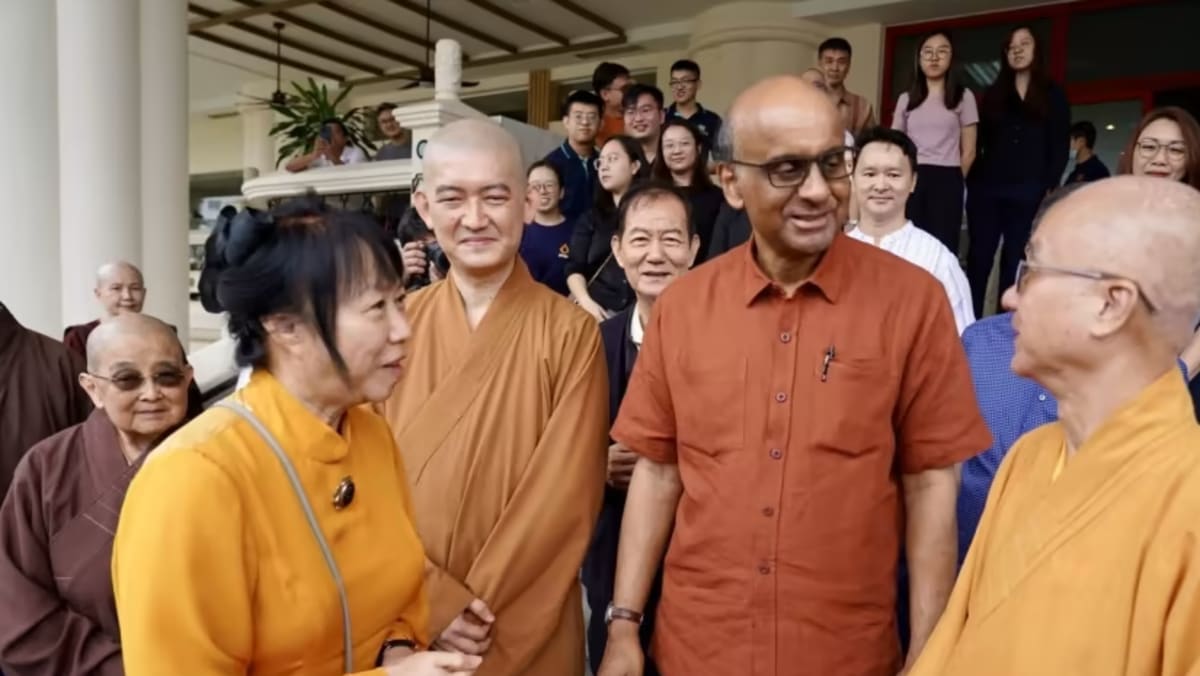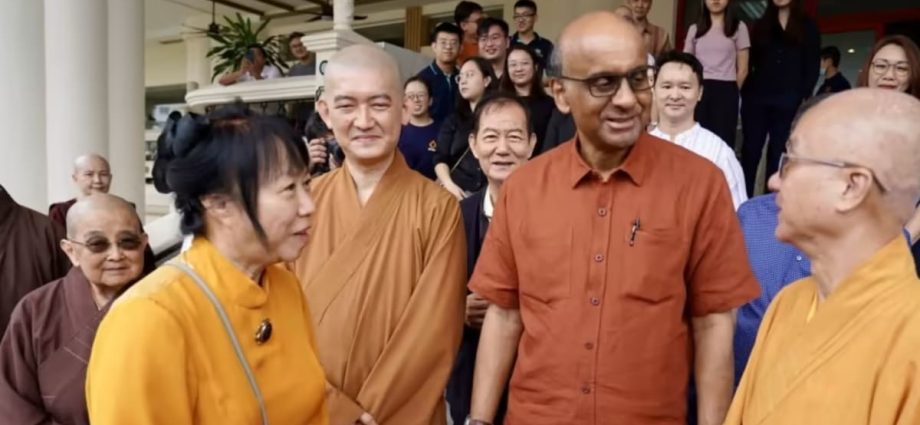
INSULATE FROM RELIGIOUS EXCLUSIONISM
Another participant asked how youths can identify themselves with their own faith without being stigmatised, to which Mr Tharman said that it helps to identify and learn about the common ground between different religions.
This can be done by learning the historical roots of different faiths and how they evolved over time, he said.
“That itself will make people more open-minded. You have your own religion but you’re not so worried about other religions because there’s something similar in the other religion.”
He added: “Having that historical understanding will help people know that it’s not a competition. They (faiths) are actually different branches of spirituality and we gain confidence in our own religion.”
However, he noted that internationally, this may be difficult in light of two reasons.
“First, religion has become too much a part of political competition, and this has made the competition between the religions much sharper and more offensive. You see it in India, in the United States and Europe today. It’s a very serious problem.
“Secondly, each religion also goes through its own intellectual waves, and these waves can last a long time … Some of the world’s religions now are going through a wave of exclusionism where they look down on other religions, and even within their own religions, it becomes very strict,” he said.
He said that Singapore has to insulate itself from the exclusionist waves, which “we are doing quite well”.
“If you look at the Muslim community, I think the leadership is insulating itself quite well from these foreign tendencies. They are trying to keep a different model of Islam in Singapore,” Mr Tharman said.
On another participant’s question about reaching out to youths, Mr Tharman’s wife Jane Yumiko Ittogi, who was present at the event, talked about her experience engaging with prisoners as a judge in a prison-wide poetry competition in 2006.
From her engagement, she said that she learned the importance of listening “very carefully” to people and affirming their pain to build a relationship with them.
“There is an ethic when people are talking to you, especially about their pain. You have to really be patient.
“And sometimes I find that just that patience allows them to put themselves in a place they want to be in their life, and see it in a positive perspective,” she added.
This article was originally published in TODAY.

